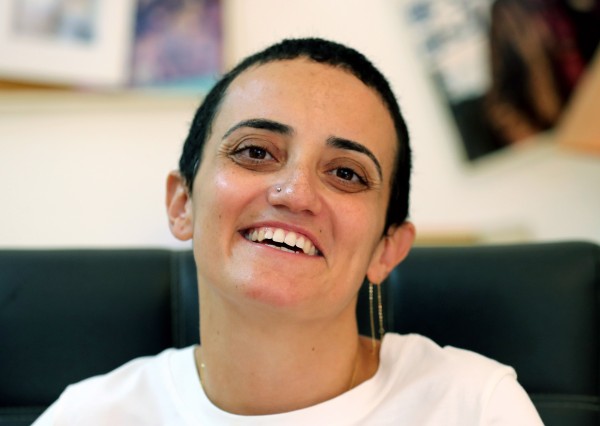The International Press Institute (IPI) recently spoke with Wieland Schneider, foreign desk editor at Austria’s Die Presse newspaper. While at university, Schneider began working as a “crazy, young” freelancer covering conflict in former Yugoslavia. Since then, he has reported from conflict zones around the world.
We talked with Schneider about his recent experiences covering the revolutions in Egypt and Libya, the importance of safety, and what journalists should think about before they head into dangerous areas.
IPI: In your career as a journalist you have been to a number of crisis areas. Amongst other things, you covered the Balkan conflicts extensively, as well as the Iraq war, and this year you travelled to Tahrir Square in Cairo, were in Libya twice to cover the civil war, which has since ended. During your trips to dangerous places, have you ever been in a situation in which you thought, ‘Uh-oh’?
WS: Yes, I can remember it was this year, in Egypt, in Cairo. It was on the first day when we were coming from the airport going to the hotel. There were these checkpoints of these local militias that were protecting their streets, and at every checkpoint it was okay, there were no problems – they were laughing, they were happy, “Oh you’re from Austria, beautiful.” And on the last checkpoint suddenly the guys went crazy and through the end I never found out why. It was also a strange gang, their boss had some old pistol, and all of them had knives and clubs.
Suddenly they wanted to search our luggage, and they found, of course, cameras (I was there with another colleague I met at the airport), satellite telephones, and then they went crazy. I was asking, “What’s the problem,” and they didn’t say anything. They were already grabbing the taxi driver by the hair, he was a local, an Egyptian, and I thought, ‘Oh God’. At the beginning there were maybe 10 people, and then there were 40 people coming from everywhere, shouting [at] us.
And then … the army arrived and they took us prisoner. And they took all our stuff and took us by the arms, and I asked, “Okay, what’s the problem?”
We were at their checkpoint and we had to kneel down on the street – and that was the first time in my life I had to do that – and one of the soldiers said, “If you run away I’ll shoot you,” but it was quite clear that it was not that dangerous any more, because they were not pointing at us. Some minutes later, another officer arrived and said, come on, get up, sorry, sorry. They again checked through all our stuff and they asked us, “You’re sure you’re journalists and not terrorists?” I said, “You’re kidding, terrorists coming from Austria coming to Egypt?” In the end everything was okay; they were laughing and giving us tea and food.
I said, “Please tell me, so we can avoid it in the future, what was the problem?” And they said, “No problem, welcome to Egypt”.
[…] I didn’t expect [at]first that it might become … that dangerous … I said, okay, there’s an uprising, maybe you take some tear gas if you have some bad luck or they’ll kick you out of the country, but I wasn’t prepared for these real attacks on journalists – they were throwing stones, the pro-Mubarak guys, they were beating journalists, there were journalists taken prisoner by people in plain clothes with knives and then handed to the military police. They didn’t do anything to me, they didn’t get me, but that was the last time I thought for one or two days, oh God, what am I doing here.
IPI: So you thought that, came back to Vienna, turned around and went to Libya? What makes you want to continue to return to new, potentially hostile environments?
WS: … It’s always just for a short moment that you think, oh God, what am I doing here, but it doesn’t last very long. I don’t know why, but it doesn’t last very long. You’re still curious, you still think, okay, you should go to Libya, there’s something going on. I couldn’t make it there when Qaddafi was kicked out of Tripoli, because I was on holiday in Italy, and you think you should be there because something is happening, [although I went to Libya in June and returned later, in September].
IPI: The International News Safety Institute has a safety code that encourages employers to make sure that their journalists are properly briefed, properly trained, equipped, insured and prepared before they are sent into a hostile environment. How do you prepare for a reporting trip to a conflict zone?
WS: I try to collect as much information as possible in advance. I try to have some people I can refer to. I try to have some people in the area already, locals that I can work together with … Then of course, to some extent, you have to rely on local people, because they know what’s going on. They can tell you to do it, or not to do it. It [can sometimes be] a problem. In Libya, for example, if you went to the frontline you had to rely on the rebel forces that were coming with you … They say they are showing you whatever you want and there are no restrictions on reporting, but somehow it is still a kind of embedding – not like it was done in Iraq or Afghanistan, you don’t have to sign anything, nobody wants to see what you’re reporting, but of course it’s psychologically embedding and I think you have that in every conflict zone.
IPI: That brings me to the next question: You can prepare physically and technically, but what about mental preparation before the trip, or when you come back. Do you think that’s something that journalists and media houses sometimes don’t take into consideration?
WS: Maybe, yes … What a lot of journalists are doing is talking to each other; people who went to conflict zones … are meeting and talking about what happened, and maybe that’s some kind of therapy. But of course you should take it into account. And sometimes … look, for example, when I was for three weeks in Congo, and it wasn’t even fully three weeks, only two and half, this culture shock… It’s stronger when you’re coming back. When I was back for the first week I thought I’m in a very un-normal environment here in Vienna. It somehow felt like the environment in the DRC is normal life, and that here is somehow not normal, abnormal. But maybe you should think about all those things when you’re coming back.
IPI: This readjusting and mental preparation, especially for journalists living abroad – is this something that journalists should look out for themselves, or should their employers make sure they have mental care if they need it?
WS: Of course, in a perfect world the employers would do it, but I wonder if they would do. You are getting insurance from your employers, that’s fine… but the other stuff… I don’t know if you would go to the employers and say, ‘I need this now.’ I think they would do it, but I also think most reporters would not go to their employers and say, ‘I need this.’
IPI: In terms of safety, when you’re reporting from a hostile environment, do you think that journalists from one media house may have more security than journalists from another? I’m thinking of the name recognition factor.
WS: I think it depends. On one hand if someone is working for CNN or a big American media house they may have more protection, they may also have more power [in a sense]… Okay, if my media house would inform the Austrian foreign ministry, they could try to do something but [in some countries] they are not as powerful as the U.S. State Department. On the other hand it could pose some danger to you, for example in Egypt if you say you’re from Austria, okay, they know Austria, and they know Austria doesn’t pose a threat and as an Austrian media [outlet] you don’t give the impression that you pose a threat. If your media house is considered too influential it could also be a danger because people want to avoid that [certain news] goes out to the worldwide media.
IPI: Is there a difference in the level of danger that journalists from print media and broadcast media face?
WS: Of course, for printed media you can avoid much more danger than if you need pictures. If you go to the frontline somewhere and you want to have pictures, you have to get closer, you have to show something. It also depends which kind of story you’re doing with cameras – if you’re doing more background, interviewing people, you can avoid it. But if it’s really for news and you have to get photos or film and … there has to be some kind of action, then the danger is much bigger.
IPI: You started as a freelancer in the Balkans. In our work we see that freelancers reporting from conflict zones are often especially vulnerable, firstly because they may not have the proper safety training or equipment, and secondly because if they are captured or injured, they don’t necessarily have a big media house behind them to alert the authorities and work on their behalf. What advice would you give to freelance journalists heading off to conflict zones for the first time as freelancers?
WS: First, think twice if you really want to do it. You have to be careful not to put yourself under pressure. [As a freelancer] you think, I want to have a story now, I have to sell it. If it’s not clear whether [a media house] is taking your story or not there’s a lot of psychological pressure, and especially if you’re young, maybe think twice if you are really going to do the story, or if it’s too dangerous. As a freelancer, you try to get the big story or the story the others don’t have, because you have to sell your story, and that might put you in danger.
IPI: And if they decide to do that story anyway?
WS: Be careful, as much as possible. I know that sounds a bit basic. But on one hand of course if you’re going into areas like that, people think [that] you’re very brave, that you’re not a very careful person. But as soon as you’re there you need to be very, very careful and think twice about things that you’re doing and maybe sometimes be not the bravest person.
At that time, I was a very young freelancer who wanted to sell stories of the Yugoslav war because it was so nearby … I think it was maybe one of the most dangerous periods of my journalist career, when I think about it today – because I wanted to sell the story, I wasn’t so well prepared.
IPI: Where did you go?
WS: I was in Bosnia and in Croatia and okay, I sold one story to an Austrian newspaper, but I didn’t really have a media house that was backing me and especially when you’re so young … I think this was maybe more dangerous than the things I do today. I didn’t feel the danger at the time, which was also very dangerous … .
IPI: Are you glad you went?
WS: Yes. In the end, yes, of course.


